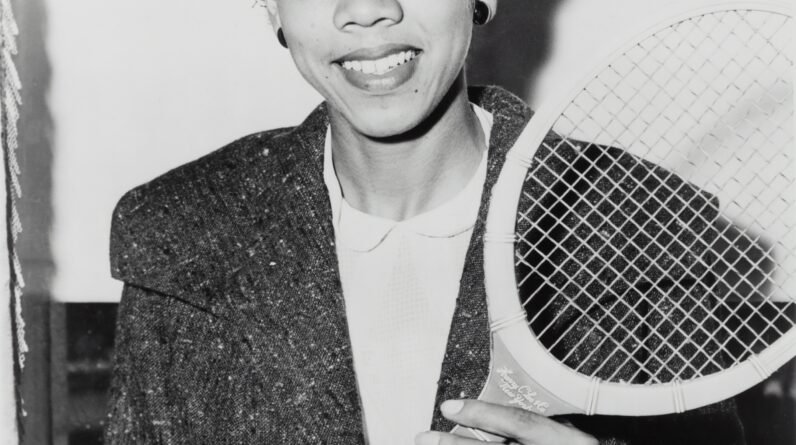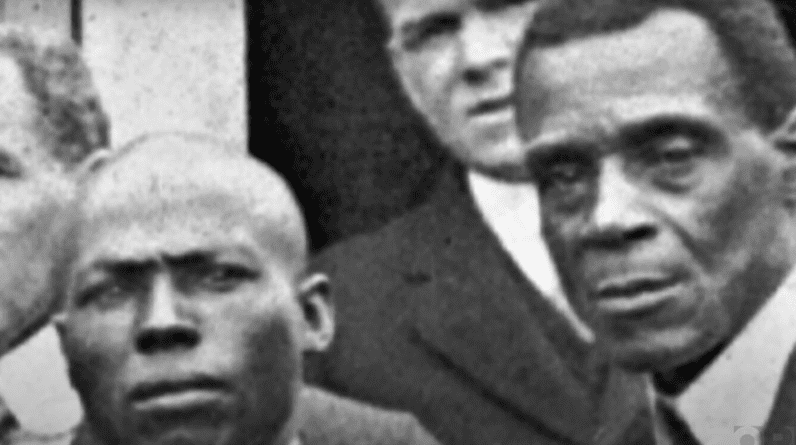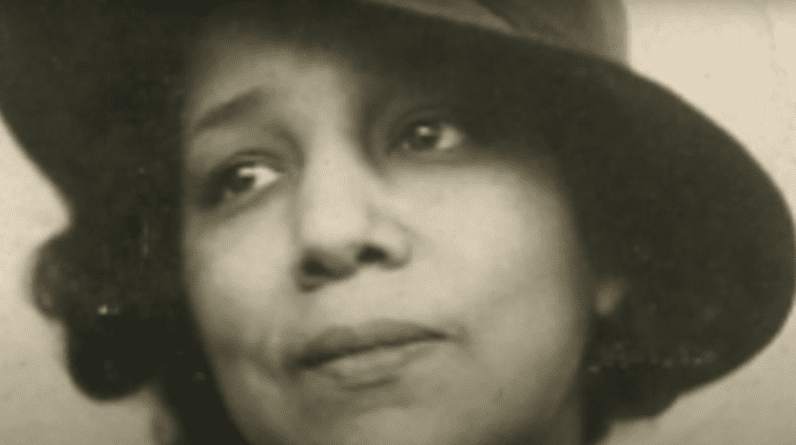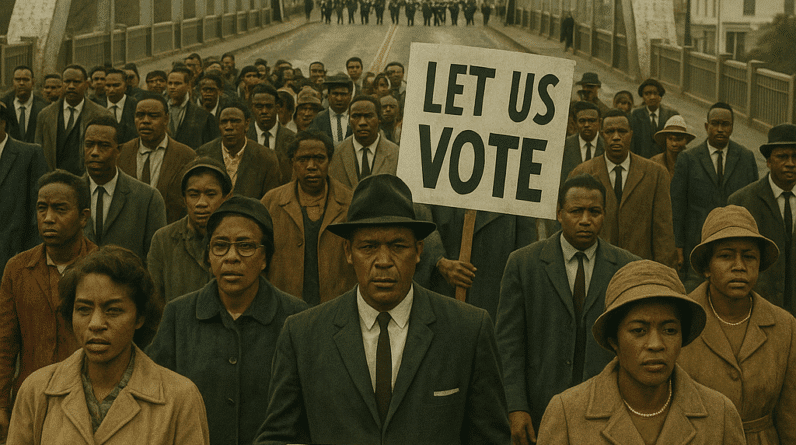
African American Athletes Who Changed the Game
African American Athletes Who Changed the Game. In the world of sports, there have been countless individuals who have defied odds, shattered stereotypes, and made history. This article highlights the remarkable achievements of African American athletes who have not only excelled in their respective fields but have also changed the game for future generations. From track and field to basketball, these trailblazers have overcome barriers, fought against discrimination, and left an indelible mark on the sporting world. Join us as we celebrate the extraordinary talents and enduring legacies of these phenomenal African American athletes.
Jesse Owens – Shattering Records and Stereotypes
Early Life and Athletics
Jesse Owens, born in Alabama in 1913, was a renowned African American athlete who overcame racial barriers and achieved remarkable success in track and field. Growing up in a racially divided America, Owens showed an early aptitude for athletics, excelling in sprinting and long jump. His talents were further honed during his time at Ohio State University, where he set numerous records and established himself as a force to be reckoned with in the world of sports.
Olympic Triumphs
Owens’ most significant moment came at the 1936 Berlin Olympics. In the face of Hitler’s Aryan supremacy ideals, Owens claimed four gold medals, stunning the world and proving that talent and determination transcend race. He dominated the 100-meter sprint, 200-meter sprint, long jump, and 4×100-meter relay, cementing his place as one of the all-time greatest athletes.
Impact on Race Relations
Jesse Owens’ extraordinary achievements not only shattered records but also challenged racial stereotypes prevalent at the time. By defying expectations and showcasing his remarkable abilities, he paved the way for future generations of African American athletes to pursue their dreams. Owens’ victories served as a powerful symbol of black excellence and greatly influenced the perception of race relations in sports and beyond.
Legacy and Recognition
Jesse Owens’ legacy extends far beyond his remarkable athletic achievements. His contributions to race relations and civil rights continue to be celebrated and honored. In 1976, he was awarded the Presidential Medal of Freedom. The Jesse Owens Award, given annually by USA Track & Field, recognizes athletes who exemplify his spirit and determination. Owens’ name will forever be etched in history as a trailblazer who pushed boundaries and inspired millions.
Jackie Robinson – Breaking the Color Barrier in Baseball
Background and Baseball Career
Jackie Robinson, born in 1919, emerged as a groundbreaking figure in the world of baseball. Initially playing in the Negro Leagues, Robinson’s exceptional talent and character caught the attention of Major League Baseball (MLB) team executives. In 1947, he became the first African American player in the modern era to break the color barrier and step onto an MLB field as a member of the Brooklyn Dodgers. Robinson’s speed, skill, and tenacity quickly made him a star player.
Integration of Major League Baseball
Jackie Robinson’s entry into MLB marked a major milestone in American sports history. His inclusion not only challenged racial segregation within professional sports but also paved the way for countless African American athletes to follow in his footsteps. Despite facing intense racism and hostility, Robinson’s unwavering resilience and determination helped break down the barriers that had long withheld talented black athletes from the highest levels of competition.
Challenges Faced and Triumphs
Jackie Robinson faced significant challenges throughout his career, both on and off the field. He endured racial slurs, death threats, and discrimination from fans, opposing players, and even some teammates. However, Robinson’s exceptional talents and unwavering resolve prevailed, as he won numerous awards, including the National League Most Valuable Player in 1949. His performance on the field and his ability to rise above adversity proved instrumental in dismantling the deeply entrenched biases of the time.
Impact on Civil Rights Movement
Beyond his athletic achievements, Jackie Robinson’s impact on the civil rights movement cannot be overstated. His presence in MLB not only revolutionized the game but also served as a catalyst for change and equality in society. By breaking the color barrier, Robinson inspired African Americans to challenge discrimination in all spheres of life. His courage and grace under pressure exemplified dignity and respect, making him an influential figure in the fight for racial justice.
Legacy and Honors
Jackie Robinson’s legacy continues to resonate today. In 1997, his iconic number 42 was universally retired from all MLB teams, making him the first athlete in any major American sport to receive such an honor. The annual Jackie Robinson Day, celebrated on April 15th, commemorates his debut and his lasting impact on the game of baseball. Robinson’s name adorns numerous awards, stadiums, and foundations that honor his contributions to sports and civil rights.
Muhammad Ali – The Greatest in and out of the Ring
Early Life and Boxing Career
Muhammad Ali, born as Cassius Clay in 1942, is widely regarded as one of the greatest boxers of all time. Ali’s journey began in the streets of Louisville, Kentucky, where he first discovered his passion for boxing. Under the guidance of legendary trainer Angelo Dundee, Ali quickly rose through the ranks and made a name for himself with his lightning-fast footwork, powerful punches, and brash personality.
Political Activism and Personal Convictions
Muhammad Ali embraced his platform as a renowned athlete to speak out against racial inequality, social injustice, and the Vietnam War. In 1964, Ali announced his conversion to Islam and changed his name from Cassius Clay, which he considered his slave name. He refused to be drafted into the military, citing his religious and philosophical beliefs, which resulted in his suspension from boxing and the stripping of his heavyweight title.
Rivalries and Iconic Fights
Ali’s boxing career was characterized by legendary rivalries and historic fights. The “Fight of the Century” against Joe Frazier in 1971 and the “Rumble in the Jungle” against George Foreman in 1974 are considered some of the most memorable bouts in boxing history. Ali’s skill, agility, and showmanship inside the ring captivated audiences worldwide and solidified his status as a true sports icon.
Civil Rights Advocacy
Muhammad Ali’s activism extended far beyond the boxing ring. His outspokenness against racial injustice made him a prominent figure in the civil rights movement of the 1960s and 1970s. Ali’s unwavering commitment to his beliefs, even at the risk of his career and personal freedom, inspired countless individuals to question the status quo and fight for equality.
Legacy as a Cultural and Sports Icon
Muhammad Ali’s charisma, athleticism, and unwavering dedication to his principles made him a cultural and sports icon. Throughout his life, he transcended the boundaries of sport and became a global symbol of courage, resilience, and the pursuit of justice. Ali’s legacy lives on through The Muhammad Ali Center, a museum and education center in Louisville that champions the ideals of peace, equality, and respect.
Florence Griffith Joyner – A Trailblazer in Track and Field
Early Life and Sprinting Career
Florence Griffith Joyner, known affectionately as Flo-Jo, was born in 1959 and left an indelible mark on the world of track and field. From an early age, her remarkable speed and determination set her apart. In college, she excelled in sprints and emerged as a standout athlete, catching the attention of the track and field community.
Unmatched Athletic Achievements
Florence Griffith Joyner’s career reached its pinnacle at the 1988 Seoul Olympics, where she won three gold medals and one silver. Her trademark style, with vibrant and flamboyant outfits and long, elaborately designed fingernails, garnered global attention. She set records in the women’s 100-meter and 200-meter sprints that still stand today, solidifying her status as one of the greatest sprinters of all time.
Style and Enigmatic Persona
Beyond her athletic achievements, Flo-Jo captivated audiences with her unique style and enigmatic persona. Her fashion choices and iconic fashion statements continue to inspire athletes and fashion enthusiasts. Despite her short-lived career, she became a household name and a symbol of excellence, empowerment, and unapologetic individuality.
Inspiration for Future Generations
Florence Griffith Joyner’s impact on the world of athletics extended far beyond her record-breaking performances. Her success and unique style inspired future generations of female athletes, particularly those from minority communities, to embrace their individuality and excel in their chosen fields. Flo-Jo’s influence continues to be felt in contemporary track and field, where her records remain untouched and her spirit lives on.
Legacy and Impact on Women’s Sports
Florence Griffith Joyner’s legacy remains firmly entrenched in the world of women’s sports. Her achievements and barrier-breaking performances continue to inspire generations of athletes to strive for greatness. The Flo-Jo Foundation, established after her untimely passing, serves as a testament to her commitment to empowering young women and underserved communities through sports and education.

Serena Williams – Dominating Women’s Tennis
Family Background and Early Tennis Career
Serena Williams, born in 1981, emerged from a family of talented tennis players to become one of the most dominant athletes in women’s tennis history. Guided by her father, Richard Williams, Serena and her sister Venus developed their skills from a young age. Serena’s natural talent and fierce determination led to a meteoric rise through the junior ranks and eventually the professional circuit.
Unmatched Grand Slam Success
Serena Williams’ career is marked by unparalleled success at the highest level of tennis. Her record-setting 23 Grand Slam singles titles, including four Olympic gold medals, cement her status as one of the greatest players in the history of the sport. Serena’s power, athleticism, and mental fortitude on the tennis court have set her apart from her competitors and sparked admiration and awe worldwide.
Resilience and Comeback
Throughout her career, Serena Williams has faced numerous obstacles, both on and off the court. From injuries to personal challenges, she has consistently demonstrated resilience and an unwavering commitment to her craft. Her comebacks from adversity, including a life-threatening pulmonary embolism, have inspired fans and athletes alike, showcasing her determination and mental strength.
Advocacy for Equal Pay and Gender Equality
Serena Williams has been a vocal advocate for gender equality in tennis and beyond. She has consistently called attention to the pay disparities between male and female athletes and has been actively involved in promoting equal opportunities for women in sports. Serena’s persistence in fighting for equal pay and challenging societal norms has helped spark important conversations and drive progress in the pursuit of gender equality.
Legacy and Influence on the Sport
Serena Williams’ indomitable spirit and unmatched success have left an indelible mark on the sport of tennis. Her dominance and longevity in an era of constantly evolving competition have set the standard for future generations of players. Serena’s legacy extends beyond her athletic achievements, as she continues to inspire young athletes to chase their dreams and strive for greatness both on and off the court.
Michael Jordan – Revolutionizing Basketball and Pop Culture
Rise to Stardom and NBA Career
Michael Jordan, born in 1963, is widely considered one of the greatest basketball players of all time. Known for his extraordinary scoring ability, unmatched athleticism, and fierce competitiveness, Jordan revolutionized the game and brought it to new heights of popularity. His six NBA championships, five MVP awards, and ten scoring titles cemented his status as a basketball legend.
Global Impact and Cultural Icon Status
Michael Jordan’s impact on basketball extended far beyond his on-court exploits. With his signature shoe line, Air Jordans, and his captivating playing style, he became a global phenomenon and an influential figure in popular culture. Jordan’s talent and charisma transcended borders, opening up new markets and captivating fans worldwide. His cultural impact made him the first billionaire athlete in history.
Achievements and Championship Success
Michael Jordan’s legacy was defined by his relentless pursuit of greatness and his unparalleled success on the grandest stage. His six championships with the Chicago Bulls, including two three-peats, showcased his ability to perform under pressure and elevate his game when it mattered most. Jordan’s iconic moments, such as his game-winning shot in the 1998 NBA Finals, solidified his status as a clutch performer and a winner.
Business Ventures and Brand Influence
Following his retirement from basketball, Michael Jordan successfully transitioned into the business world. His ownership stake in the Charlotte Hornets and his lucrative endorsement deals, including his partnership with Nike, catapulted him to financial success. Jordan’s brand has remained iconic, with his shoes continuing to be highly sought after by sneaker enthusiasts worldwide.
Legacy and Lasting Impact
Michael Jordan’s impact on basketball is immeasurable. His style of play, mental toughness, and competitive spirit have served as a blueprint for future generations of athletes. The Jordan Brand, with its focus on excellence and individuality, continues to be a dominant force in the sports apparel industry. Jordan’s legacy goes beyond statistics and championships – he epitomizes the relentless pursuit of greatness and the enduring power of passion and determination.

Wilma Rudolph – Overcoming Adversity to Become an Olympic Champion
Early Life and Battle with Illness
Wilma Rudolph, born in 1940, showcased unwavering determination and resilience from an early age. As a child, she battled through several illnesses, including polio, which left her legs weak and paralyzed. Through relentless physical therapy, she eventually regained her ability to walk and discovered her passion for running.
Triumphs at the Olympics
Wilma Rudolph’s perseverance paid off at the 1960 Rome Olympics, where she achieved incredible success. She became the first American woman to win three gold medals in a single Olympics, triumphing in the 100-meter dash, 200-meter dash, and 4×100-meter relay. Rudolph’s victories resonated far beyond the track, as she became a symbol of triumph over adversity and an inspiration to all.
Role in Inspiring African American Women
As an African American woman competing during a time of racial segregation and discrimination, Wilma Rudolph’s achievements carried significant weight. Her success not only shattered athletic records but also challenged societal barriers and inspired African American women to believe in their own abilities. Rudolph’s remarkable journey served as a testament to the power of determination, resilience, and self-belief.
Activism and Philanthropy
Wilma Rudolph continued to champion the cause of equal rights and social justice throughout her life. She established the Wilma Rudolph Foundation, which provided scholarships for underprivileged athletes and promoted sports as a vehicle for personal growth and empowerment. Rudolph’s commitment to giving back and uplifting her community cemented her legacy as a true humanitarian and trailblazer.
Legacy and Recognition
Wilma Rudolph’s impact on the world of athletics and beyond continues to be celebrated. Her legacy is honored through various awards, including the Wilma Rudolph Courage Award, presented to individuals who exhibit extraordinary courage in the face of adversity. Rudolph’s story of triumph and resilience serves as an enduring reminder that with determination and perseverance, anything is possible.
Arthur Ashe – Pioneering Tennis Player and Advocate
Early Life and Tennis Career
Arthur Ashe, born in 1943, made a significant impact both on and off the tennis court. Growing up in segregated Richmond, Virginia, Ashe faced countless challenges due to his race. Despite these obstacles, he honed his tennis skills and eventually became the first African American male player to reach the pinnacle of the sport.
Grand Slam Victories and Barrier-Breaking Moments
Arthur Ashe’s career was marked by multiple Grand Slam victories and historic accomplishments. In 1968, he claimed his first major title at the US Open, becoming the first African American male to win a Grand Slam singles championship. Ashe’s triumph not only elevated him to tennis stardom but also signaled a new era of inclusivity and opportunity in the sport.
Social Activism and Humanitarian Efforts
Arthur Ashe’s impact extended beyond the tennis court. He used his platform to advocate for racial equality, social justice, and access to education. His activism reached its peak during the height of the Civil Rights Movement. Ashe fought against apartheid in South Africa, championed athletes’ rights, and dedicated himself to improving the lives of underprivileged children through his foundation.
Battle with HIV/AIDS and Ashe Legacy
In 1988, Arthur Ashe publicly revealed his diagnosis of HIV/AIDS, which he contracted through a blood transfusion during heart bypass surgery. Despite the adversity he faced, Ashe continued to raise awareness about the disease and became a leading advocate for HIV/AIDS research and education. His courage and grace in the face of his personal battle further solidified his legacy as a humanitarian and trailblazer.
Awards and Legacy
Arthur Ashe’s contributions to tennis and society were widely recognized and celebrated. In 1993, he was posthumously awarded the Presidential Medal of Freedom, the highest civilian honor in the United States. The Arthur Ashe Courage Award, presented annually at the ESPY Awards, honors individuals who have shown exceptional courage in the face of adversity. Ashe’s name and legacy live on as a reminder of the transformative power of sports and the importance of using one’s platform for the greater good.
Althea Gibson – Trailblazer in Tennis
Introduction to Tennis and Early Challenges
Althea Gibson, born in 1927, overcame tremendous obstacles to become a pioneer in the world of tennis. Growing up in Harlem, New York, Gibson initially excelled in other sports before discovering her talent for tennis. However, her path to success was riddled with racial discrimination and limited opportunities for African American athletes.
Grand Slam Victories
Althea Gibson made history in 1956 when she became the first African American to win a Grand Slam title, triumphing at the French Championships (now known as the French Open). She followed this groundbreaking achievement with victories at Wimbledon in 1957 and 1958, solidifying her status among the greatest tennis players of her time.
Impact on Integration and Civil Rights
Althea Gibson’s victories on the tennis court challenged racial barriers and paved the way for future African American tennis players. Her achievements were particularly significant in a sport that had historically been dominated by white athletes. Gibson’s success acted as a catalyst for integration in tennis and served as a source of inspiration for aspiring African American athletes across all sports.
Transition to Professional Golf
After retiring from tennis, Althea Gibson faced challenges in finding new opportunities in sports. She made a groundbreaking transition to professional golf, becoming the first African American woman to join the Ladies Professional Golf Association (LPGA). Despite facing obstacles and discrimination, Gibson’s trailblazing efforts opened doors for future generations of African American golfers and furthered the cause of racial equality in sports.
Legacy and Honors
Althea Gibson’s exceptional contributions to both tennis and golf continue to be recognized and honored. She was inducted into the International Tennis Hall of Fame in 1971, cementing her status as one of the sport’s legends. The Althea Gibson Foundation, established in her honor, seeks to positively impact young people through sports and education. Gibson’s legacy stands as a testament to her perseverance, trailblazing spirit, and unwavering commitment to breaking down barriers.
LeBron James – Athlete and Philanthropist
Early Life and Basketball Journey
LeBron James, born in 1984, has electrified the world of basketball with his exceptional skills, athleticism, and philanthropic endeavors. Growing up in Akron, Ohio, James showcased prodigious talent from a young age. His success in high school basketball led to immense popularity and national attention, setting the stage for an extraordinary professional career.
NBA Success and Championships
LeBron James’ NBA career has solidified his status as one of the greatest basketball players of all time. James has dominated the court, winning numerous MVP awards and leading his teams to multiple NBA championships. His ability to elevate his game in crucial moments and his versatility on both ends of the court have made him an invaluable asset to his teams.
Social Activism and Philanthropy
Beyond his achievements on the basketball court, LeBron James has been an outspoken advocate for social justice and equality. He has used his platform to bring attention to important societal issues, particularly those affecting marginalized communities. Through the LeBron James Family Foundation, he has worked tirelessly to improve educational opportunities for underprivileged youth and positively impact their communities.
Business Ventures and Community Empowerment
LeBron James’ influence extends far beyond the realm of sports. He has successfully ventured into various business endeavors, including media production and endorsement deals, solidifying his status as a highly influential figure in popular culture. Furthermore, his commitment to community empowerment and economic development has not only brought jobs and investment to his hometown of Akron but also served as a model for athletes seeking to make a positive difference in their communities.
Legacy and Influence
LeBron James’ impact as an athlete and philanthropist continues to inspire generations. His exceptional skills and leadership on the court have redefined the possibilities for professional basketball players, while his commitment to social justice and community empowerment has set a new standard for athletes’ civic engagement. LeBron’s legacy extends far beyond the world of sports, reflecting his unwavering dedication to creating positive change in society.
In conclusion, African American athletes have played an instrumental role in breaking barriers and challenging societal norms throughout the history of sports. Jesse Owens, Jackie Robinson, Muhammad Ali, Florence Griffith Joyner, Serena Williams, Michael Jordan, Wilma Rudolph, Arthur Ashe, Althea Gibson, and LeBron James have each left an indelible mark on their respective sports and have inspired countless individuals. Through their achievements, activism, and determination, these athletes have paved the way for future generations to pursue their dreams and fight for equality. Their legacies will forever serve as a reminder of the power of sports to transcend boundaries and ignite change.








